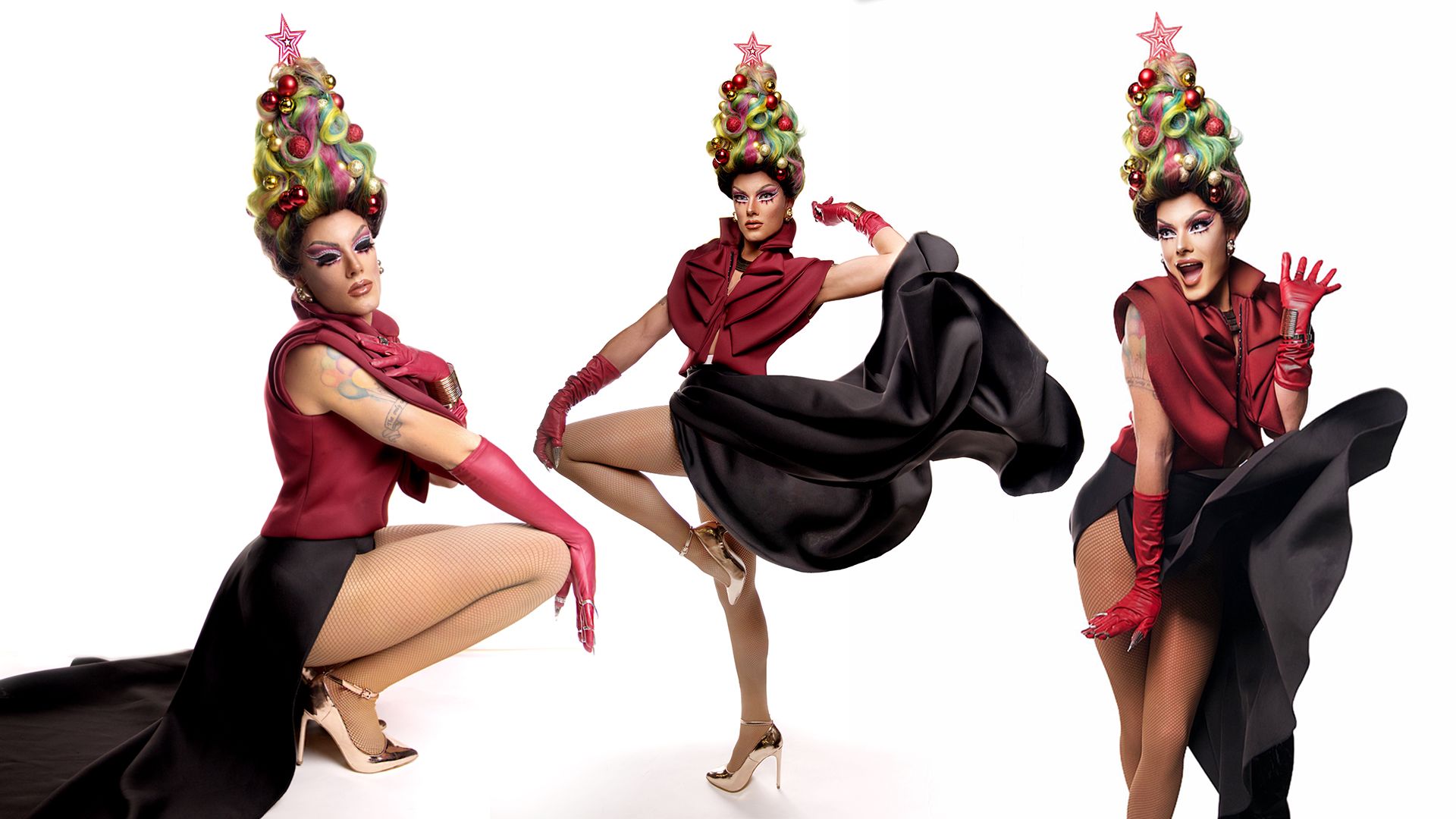Out and Proud? LGBT+ in Bulgaria
Written by Denitsa Dimitrova, edited by Scott Green, photo of Malina Yank by Evgeni Kirilov
RuPaul threw a stone through the window of separation by putting drag queens on TV screens for 13 seasons and running. The show is said to have had a major impact on the international LGBT+ community in terms of acceptance from society and building confidence in young men and women who have not yet come out. RuPaul’s Drag Race is not available on Bulgarian TV but has it had an impact anyway? And can we expect to see our own drag queens on the TV screen soon?
Simeon: It definitely had an impact on the community, on self-expression. We were doing viewing parties for the previous seasons and lots of people started experimenting with drag as a result of that. There is a whole new wave of drag queens now who are more open and are part of popular culture. Recently I saw drag queens in a music video by a Bulgarian pop-folk singer and I’ve heard that the community is represented with LGBT+ characters in the ‘Otkradnat Jivot’ series. Pop culture is such a strong tool for creating social change, the liberation of self-expression, and the freedom to sparkle, I would say. Hopefully, we will have more gay men being open and using that because RuPaul really did that – he used it as a stone through the window but a very shiny, sparkling, bedazzling stone. I hope that people will be using their sexuality and their energy to achieve something as great as he did.
Kosta: RuPaul’s Drag Race is loved and watched by our community here as well! There are social media groups that discuss the show with fervor. One thing that is very cool over the last three years is our own drag contest called Benediction Drag Race. It’s a big production with celebrity judges and a live show, so the Bulgarian drag scene is thriving and setting a positive example for the rest of the community. Most recently one of the girls from Benediction’s house was on Bulgaria’s Got Talent, so there is some mainstream representation. What’s also exciting is that this year we are partnering with Benediction Drag Race as a media partner, so you can read all the latest about it over at Out.bg.
Glamortal Kombat Ball 2019. Photo courtesy of GLAS Foundation
Gloriya: Yes, RuPaul’s Drag Race is not available on Bulgarian TV, but I think that the community never relied on Bulgarian TV to provide us with queer media. LGBTI teens grow up on the internet, discovering queer content by themselves, searching for representation. This is how many people discovered RuPaul and many other shows that give us a little bit of hope and a glimpse at the queer life we wish to have when we’re still discovering our identities. I’m a Drag Race person, but I know that many people in the community are and that they find support and empowerment in the show and form communities around it, which is great. It’s important to note that drag and dressing up was part of the Bulgarian LGBTI scene since the 90s so it was a thing even before Drag Race. Currently, there is a great initiative by Sofia Queer Forum aiming to bring to life the wonderful Bulgarian Drag History. I think that in the last couple of years the drag scene in Bulgaria is blooming and people can follow Sofia Queer Forum and initiatives like Queer Vartelezhka for more local content. For sure Drag Race has a role in this, because it reaches more people and motivates more people to do drag, but I also like to give credit to the brave local drag queens and kings who have been doing this form of art for decades now.
Chris: RuPaul’s Drag Race has become a mainstream success worldwide. You can definitely feel its impact among some people from the younger LGBT+ generations in Bulgaria and the local drag scene. We are seeing more and more talented young drag artists in our country in the past few years. It feels like a renaissance of the gay culture here in a way. Monica Loca, Jennifer Benediction, Avra, Africa Benediction, Engima Chadelle, Malina Yank, Venera Angelicova, and Katrin Bardak are just some of their names and they are clearly influenced by the modern way of doing drag. Some of them are already getting great exposure by taking part in music videos and participating in different events. Of course, drag culture is not everyone’s cup of tea so there’s always going to be this other part of the LGBT+ community that’s not going to care about it but you can definitely sense a change brought by RuPaul’s Drag Race. Unfortunately, there’s no way for a show like this to exist on Bulgarian TV at this point.
This article is the fourth part of a five-part series. If you want to read more about the LGBT+ community in Bulgaria please read part 1, part 2, part 3, and part 5.
